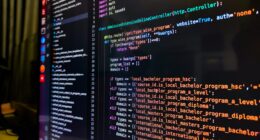Training focuses on acquiring specific skills, often practical and job-oriented. Education encompasses a broader understanding of concepts, theories, and principles.
TL;DR Training Vs. Education
Training focuses on developing specific skills or knowledge for a particular job or task. It is practical and hands-on, providing individuals with the tools they need to perform their duties effectively.
Education encompasses a broader scope of learning that goes beyond just acquiring skills. It aims to foster critical thinking abilities, promote personal growth, and develop a well-rounded individual. Education provides a deeper understanding of various subjects and helps in shaping one’s worldview.
What is Training?

Training is a systematic process of acquiring knowledge, skills, and competencies for a specific purpose, often related to practical applications. It involves organized and structured activities designed to enhance an individual’s performance in a particular job, task, or role.
Training can be hands-on and experiential, emphasizing the development of practical skills and competencies. It is commonly utilized in professional settings to address specific job requirements, improve efficiency, and enhance productivity.
Training methods may include workshops, simulations, on-the-job learning, and mentorship programs. The goal of training is to equip individuals with the specific capabilities needed to perform effectively in their roles and contribute to organizational success.
What is Education?

Education is a comprehensive process of acquiring knowledge, understanding, and intellectual capabilities across a wide range of subjects. It goes beyond specific job-related skills, encompassing the development of critical thinking, problem-solving, and analytical abilities.
Education is typically formal and structured, involving institutions like schools and universities. It covers a broad spectrum of disciplines, including humanities, sciences, arts, and social sciences.
The aim of education is to provide individuals with a well-rounded understanding of the world, fostering personal and intellectual growth. It involves classroom instruction, research, and various learning experiences, shaping individuals into informed, responsible citizens capable of contributing to society in diverse ways. Education serves as a foundation for lifelong learning and personal development.
Training Vs. Education – Key differences
| Criteria | Training | Education |
|---|---|---|
| Focus | Practical skills and job-specific competencies | Broad understanding, critical thinking, and analytical abilities |
| Purpose | Job performance and specific task achievement | Personal and intellectual development |
| Scope | Narrow, job-oriented | Broad, covering various disciplines and subjects |
| Setting | Workplace, vocational institutions | Schools, colleges, universities |
| Delivery Methods | On-the-job, workshops, simulations, mentorship | Classroom instruction, research, experiential learning |
| Duration | Often short-term and task-specific | Longer-term, encompassing multiple subjects and years of study |
| Outcome | Immediate application of learned skills | Development of knowledge, critical thinking, and lifelong learning skills |
| Application Focus | Practical and applied knowledge | Theoretical and conceptual understanding |
| Institutional Types | Training centers, vocational schools | Schools, colleges, universities |
| Learning Environment | Emphasis on hands-on experiences and practical application | Focus on a balanced blend of theory and practical applications |
| Career Impact | Immediate improvement in job performance | Positions individuals for diverse career opportunities and roles |
Benefits of Training and Education
Benefits of Training:
- Skill Enhancement: Improves specific job-related skills, enhancing performance and productivity.
- Job Readiness: Prepares individuals for specific roles, making them more competent and ready for the workplace.
- Efficiency Improvement: Enhances efficiency by focusing on practical, task-specific training.
- Quick Application: Immediate application of learned skills in the workplace.
Adaptability: Enables quick adaptation to changes in job requirements or technology.
Benefits of Education:
- Holistic Development: Fosters overall personal and intellectual growth.
Critical Thinking: Develops analytical and critical thinking skills applicable across various domains. - Versatility: Provides a broad knowledge base, allowing for versatility in career choices.
- Lifelong Learning: Establishes a foundation for continuous learning and adaptability.
- Global Perspective: Encourages a broader understanding of diverse cultures, societies, and global issues.
Image Credits
Featured Image By – Victoria Loveland from Pixabay
Image 1 By – Antonika Chanel from Pixabay
Image 2 By – Olya Adamovich from Pixabay








